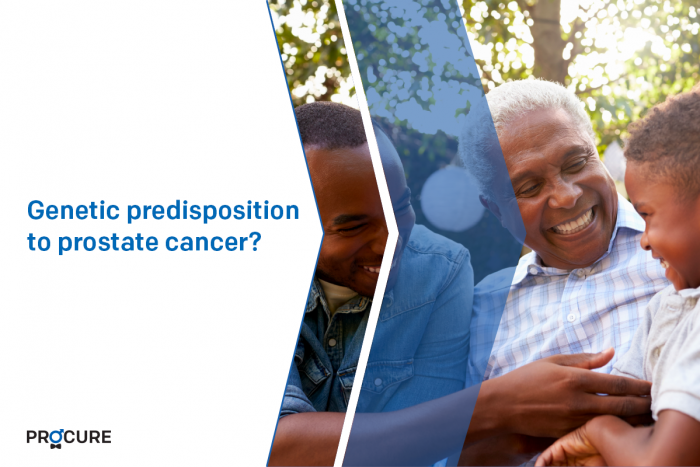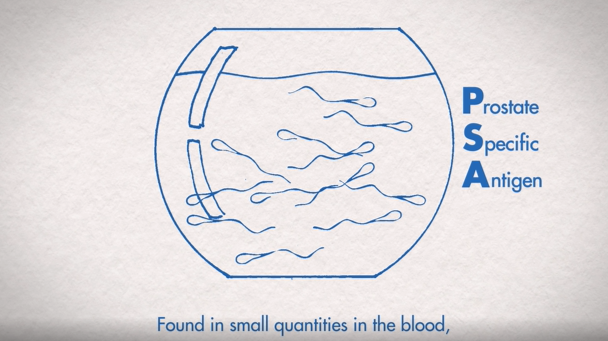To date, several genes have been identified as having a link with prostate cancer. When there is a suspicion of a genetic predisposition to prostate cancer or when metastatic (generalized) cancer develops at a young age, your doctor may recommend genetic screening to get to find out for sure. Here are 5 things to know about this risk factor.
- Genetic predisposition: Am I at risk?
If you have inherited certain genetic mutations, your risk of developing prostate cancer may be higher than average and, depending on some genetic variants, more aggressive than others at diagnosis.
- Only 5-10% of prostate cancers are hereditary
This means that these cancers have a genetic component that can be passed on from one generation to the next, from the father or the mother. But be aware that not all children inherit genes from their parents, which may explain why one will develop prostate cancer while the other will not.
- I have prostate cancer. Should I have genetic screening?
Your doctor may encourage you to take a genetic test if your cancer is aggressive and has metastasized, if you have a family history of cancers (breast, ovary, pancreas, prostate). He will consider the number of members of your family who have been diagnosed with these cancers and whether they are 1st-degree relatives: father, mother, siblings.
- What do the test results mean to me and my family?
A genetic counselor (attached to a hospital center) can help you learn more about your test results, including the chances that other members of your family may carry the same genetic variants. Your genetic counselor can also help you decide if, when, and how you want to share information about your test results with family members. In some cases, they may offer genetic testing to your relatives. Please be aware that the results are confidential and that, by law, you do not have to disclose them to insurance companies.
- Will my result influence prostate cancer screening or treatment?
If you test positive for certain genetic traits that increase your risk of cancer, your doctor or genetic counselor may suggest that you get tested as early as age 40, recommend lifestyle changes or other strategies to reduce your risk of developing cancer, and discuss medical implications with family members. Being diagnosed with prostate cancer while carrying a genetic mutation can affect your treatments and medical follow-up.
Discover our new animated videos
Discover three new animated videos, each equally unique and original from one to the other. Be on the lookout!
Here is the first one – Symptoms, Risk and Screening
Take the time to visit each of our pages on this website, as well as our YouTube channel, in order to get familiar with the disease with our expert lectures, our section on available resources, the support that is offered to you.
Do you have any questions or concerns? Above all, do not hesitate. Contact us at 1 855 899-2873 to discuss with a nurse specializing in uro-oncology. It’s simple and free, like all our services.
Pages of our site that might interest you
How to reduce your risk
Prostate Cancer – Signs and Symptoms
What are the screening tests and is it for you
Articles that might interest you
Supplements: myths vs reality vs your wallet
D: vitamin or hormone? And why is it important?
Sources et references
Risk Factors Prostate Cancer – cancer.ca
Prostate Cancer – Understand the disease and its treatments; Fred Saad, MD, FRCSC and Michael McCormack, MD, FRCSC; 4th & 5th editions
Written by PROCURE. © All rights reserved – 2021



 ADDITIONAL RESOURCES
ADDITIONAL RESOURCES


